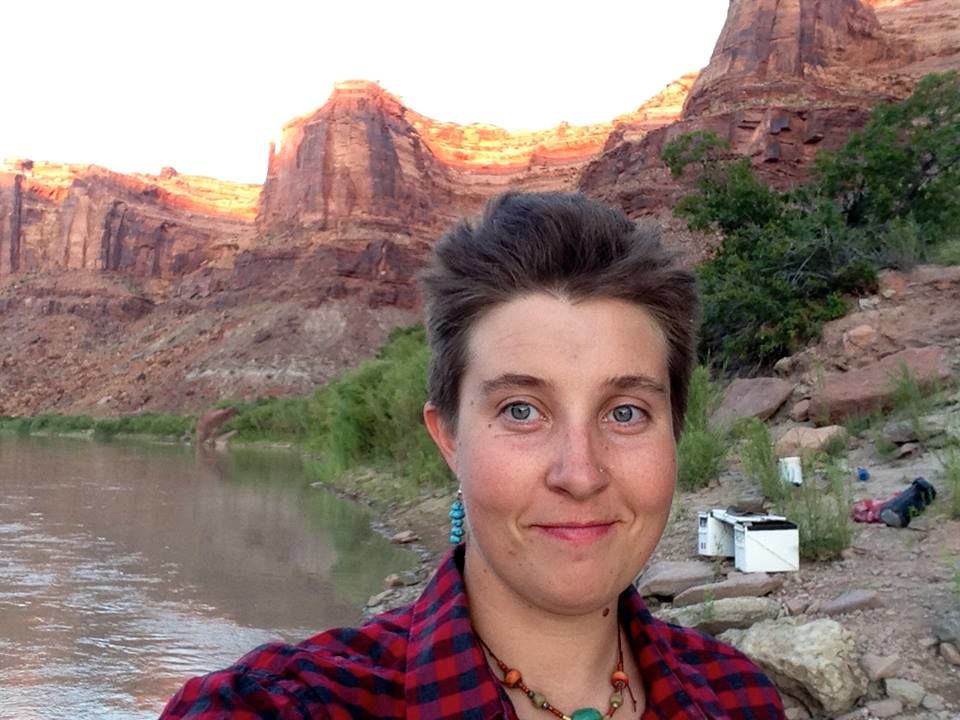Some information may be outdated.
As a river runner and business owner in Utah, I understand the importance of our outdoor economy and how our public lands and rivers provide economic opportunity in the community. Holiday River Expeditions provides outdoor recreation opportunities every season, taking guests out to visit our state’s world-class public lands. But increasingly our state has flagrantly mismanaged these shared public commons; these lands that are meant for all to enjoy. We must hold our elected officials accountable so that the public lands we use for rafting, biking, hiking, hunting, fishing, and countless other recreation activities, and which contribute to our high quality of life here, remain intact for future generations.
Last year, with the help of the Department of Interior, Governor Gary Herbert’s administration supported massive reductions of protected public land across our state. Bears Ears and Grand Staircase national monuments safeguarded tens of thousands of tribal cultural and historic artifacts, protected critical paleontological areas where new discoveries were being made into the history of the dinosaurs, and sheltered critical clean water sources and pristine ecological areas that many species rely upon (including us). Millions of acres were removed from protection within these monuments and, since then, it has been open season for speculative mining and other extractive industries. Now, Governor Herbert and his administration is attacking the U.S. Forest Service’s 2001 national “Roadless Rule.”
Utah has more than four million acres of beautiful, backcountry forestland protected by this rule. For nearly twenty years, the Roadless Area Conservation Rule has safe-guarded backcountry areas of Utah’s national forests from commercial logging, road-building, mining, and other forms of intrusion. This year, Governor Herbert submitted a petition to the U.S. Forest Service that seeks to exempt Utah from these protections. Why would we want to build roads through our most precious backcountry public lands? It doesn’t make sense – especially in Moab. This is yet another attack on Utah’s public lands, and seems to be an attempt to lock in sweetheart deals for industrial development and climate change causing fossil fuel extraction.
Governor Herbert’s draconian proposal jeopardizes our forests, our clean water, our wildlife habitat, and the exceptional recreation opportunities that Utahns (and our outdoor businesses) rely upon. This proposal also flies in the face of any plan to curb fossil fuel emissions in order to avoid the worst effects from climate change. The petition also does not contain any science-based reasoning for exempting Utah from the Roadless Rule. It fails to mention any research or scientific support. That fact, to everyone, should be incredibly telling. A lack of any meaningful engagement with experts in forest ecology, fire, wildlife biology, climate or other related fields sets Utah up for poor policy and poor public lands management.
The Forest Service is now considering whether or not they will accept Governor Herbert’s petition and move forward with chipping away at the Roadless Rule in Utah. We must educate ourselves on what is happening. We must spread the word that we do not support this effort. We must tell the Forest Service that Utah’s public lands are not for sale.
If the goal of the Herbert administration is to bolster Utah’s economy through logging and mining, they are seemingly blind to the $887 billion-plus outdoor recreation industry. That is an economy that benefits from clean rivers, clean lakes and protected public lands.
My child’s future, and the entire next generation, relies on the decisions that our generation makes today. We need to push our leaders to conserve public lands for the next generation to enjoy. Attempting to undermine the protections in the Roadless Rule endangers outdoor recreation, the outdoor economy and future Utah generations.
Lauren Wood is a lifelong river runner, part owner of Holiday River Expeditions and a board member of the Utah chapter of the Sierra Club and is a member of the Green Riverkeepers.
“My child’s future, and the entire next generation, relies on the decisions that our generation makes today.”
Appreciate the coverage? Help keep local news alive.
Chip in to support the Moab Sun News.



